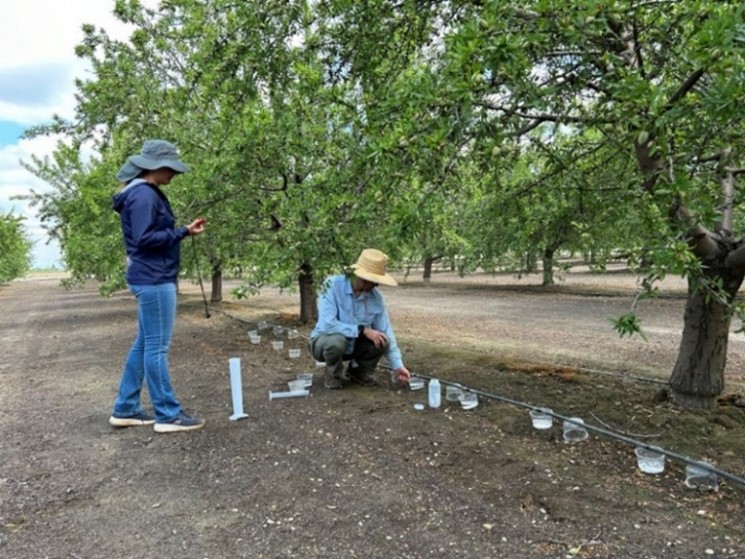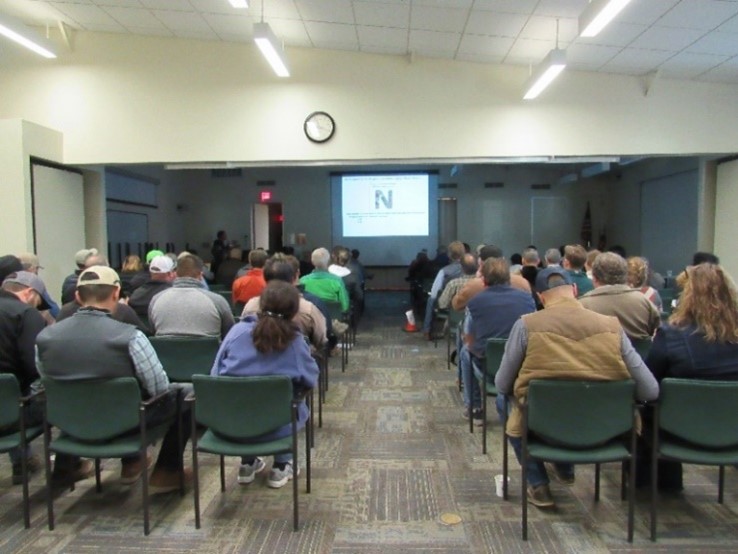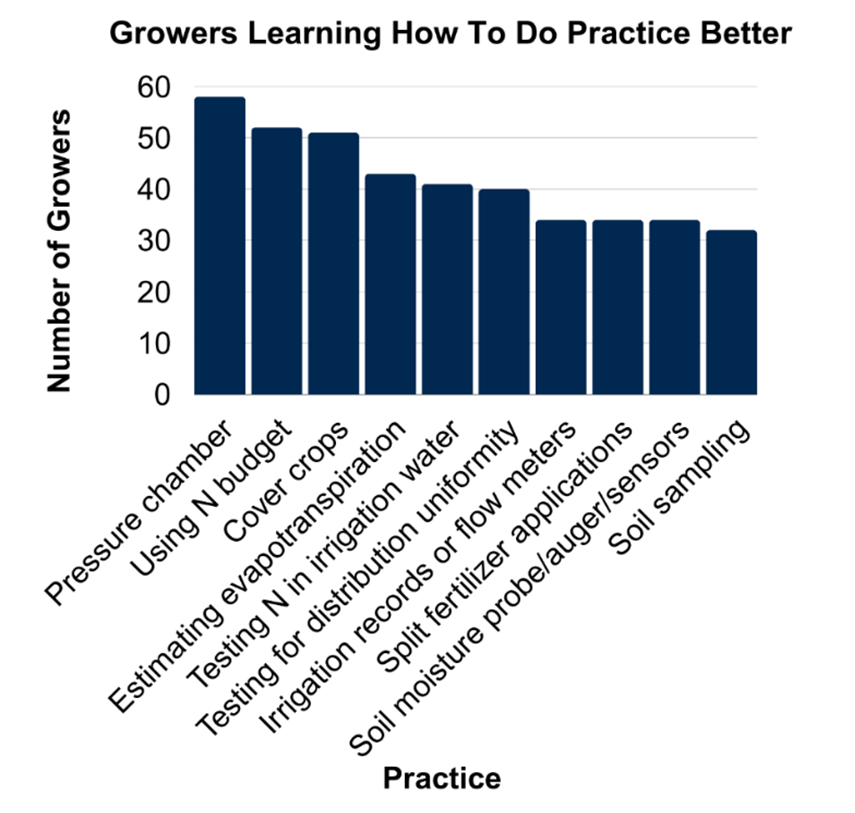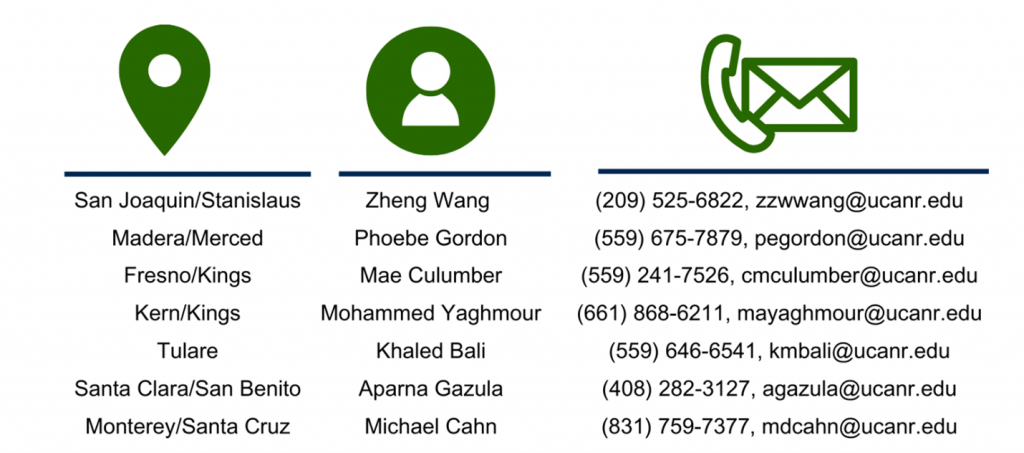

Background
Due to historical overapplication of nitrogen (N) fertilizers, California growers are facing increasingly stringent water quality regulations. This is especially true in intensively cultivated agricultural areas like the San Joaquin Valley and Central Coast region, where nitrate from fertilizers and other sources can be found in groundwater. For the communities in these locations that rely solely on wells for drinking water, the issue is of critical importance.
In response, the State and Regional Water Boards, through the Irrigated Lands Regulatory Program, enacted N reporting requirements and will be considering N fertilizer application limits to achieve long-term groundwater nitrate reductions to meet drinking water standards. While more stringent regulatory requirements may take several years to impact growers, since adopting new practices can be a lengthy process, there is a pressing need to help growers improve their current N and irrigation practices at this time.
Program Summary
The Nitrogen and Irrigation Initiative (NII) is a collaborative partnership between the California Department of Food and Agriculture’s (CDFA) Fertilizer Research and Education Program (FREP), University of California Cooperative Extension (UCCE) farm advisors, and UC Davis social scientists to help growers and crop consultants improve N- and irrigation-use efficiencies through targeted outreach and education. NII farm advisors and their staff are helping San Joaquin Valley and Central Coast growers improve management practices and adopt system improvements that reduce fertilizer and irrigation costs and meet water quality requirements without compromising yield or quality.
NII activities include free, individualized, on-farm consultations by advisors and their staff, farm trials, and field days that demonstrate N and irrigation best management practices (BMPs), educational events and workshops, and resources such as fact sheets, videos, and articles.
Since NII outreach began in 2022, the program has reached over 3,500 participants, providing:

Program Evaluation
The UC Davis team is assessing the impact of the program on grower learning and adoption of practices and providing feedback to improve project outcomes. Surveys collected during NII training events over the last two seasons show that participants are improving their understanding of N and irrigation practices (Figure 1). By providing information about practices that growers are familiar with, workshops are increasing participants’ understanding and confidence in maintaining and improving these practices. Growers who are not currently using these practices are also indicating that they learned enough to implement a BMP within the following year.

Figure 1. Survey results from NII workshops show that growers are learning more about N and irrigation BMPs. Results are based on completed surveys by 179 participants.
Accessing Free Workshops and On-Farm Consultations
NII farm advisors are hosting educational field days and talks, with most events held during the late fall, winter, and early spring. Topics vary by region and crop and may be sponsored by UCCE, local coalitions, commodity groups, or other collaborators. You can find more information about program activities on the NII website (https://ucanr.edu/sites/nii/).
Farm advisors are also available to provide free, on-farm consultations to growers and their teams. During a consultation, NII advisors will provide individualized recommendations and assist with implementing efficient BMPs.
If you are interested in scheduling an on-farm consultation or have questions about the NII program and available resources, please call or email your local NII farm advisor.



